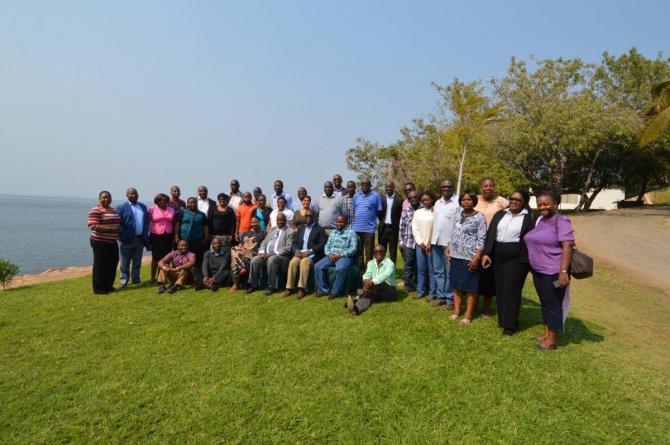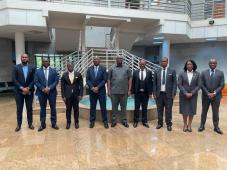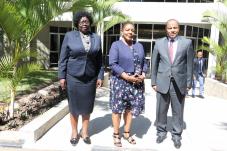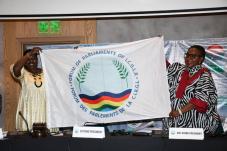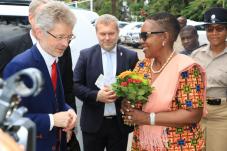SADC Parliamentary Forum Secretary General, Dr Esau Chiviya has said Parliamentary Staff must be capacitated in order to make them effective in playing their supportive role to Members .
Speaking when he officially opened the three day capacity building workshop on operationalizing the Sexual Reproductive Health and Rights (SRHR) and HIV and AIDS governance project for staff members of the Parliament of Zambia on Monday, 25th July, 2016 in Siavonga, Dr Chiviya said apart from their supportive role, staff are key in facilitating the learning experience of Members of Parliament in order for them to function effectively. “For this reason, the staff members of Parliament need to be constantly informed and capacitated on latest developments on the functions of the MPs so that you can provide them with required technical knowledge and advice aimed at enhancing their performance in executing their functions” he said.
And speaking at the same function, on behalf of the Clerk of the National Assembly, Mr. Steven Kawimbe, Principal Clerk of Committees said the workshop is a milestone in the implementation of the SRHR project which since its inception has been executed primarily by Parliamentarians. He added that the strength of the Zambian Legislature lies heavily on the expertise of its staff and therefore, investing in the staff members’ capacity building is necessary in ensuring stability and constant support to both current and future members.
The SADC Parliamentary Forum with the financial support from Swedish and Norwegian governments and through the Human and Social Development and Special Programs Program, is spearheading the implementation of a four-year SRHR and HIV and AIDS Governance Project. The project seeks to build the capacity of SADC Parliamentarians in general and female Parliamentarians in particular to advocate for universal access to SRHR and HIV and AIDS services in order to contribute to the noble goal of eradicating HIV and AIDS by 2030. The Project is being implemented in Zambia, Zimbabwe, Lesotho, United Republic of Tanzania, Seychelles and Mauritius.
